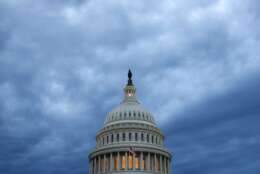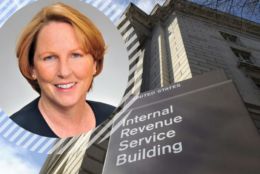Management
-
Between the defense authorization bill, work on a potential infrastructure package and annual spending legislation, members of Congress are hoping to get at least a few big things finished.
July 26, 2021 -
Some organizations are tentatively eyeing fall agency reentry dates for their employees, but they face pressure from some members of Congress, who want to see the workforce back in-person sooner.
July 23, 2021 -
In today's Federal Newscast, the Department of Labor will offer virtual seminars throughout August to prepare for federal contract minimum wage increases.
July 23, 2021 -
As Congress prepares to spend relatively more money than it spent on World War II, the question arises whether the federal workforce even has the capacity to carry out whatever programs the coming money will spawn.
July 23, 2021 -
As cybersecurity attacks interrupt government services at the state and municipal levels, governors are calling on the National Guard for help.
July 23, 2021 -
Operators of networked 3D printers aren't always securing the machines or the files that drive them, according to the DoD Office of Inspector General.
July 23, 2021 -
The Navy and Air Force want to shed existing weapons systems to free up funds for great power competition. Many of those systems really are old, but not all.
July 23, 2021 -
Lawmakers are pressing the State Department to move more aggressively to address a backlog of as many as 2 million pending passport applications.
July 22, 2021 -
Department of Veterans Affairs reform legislation back in 2018 required the Veterans Health Administration to report regularly on its staffing and vacancy levels.
July 22, 2021 -
How can the Department of Homeland Security possibly vet 40,000 people coming to the United States every day to spot the possible security threats?
July 21, 2021 -
The Project on Government Oversight's Mandy Smithberger testified about the issue to Congress, and she joined Federal Drive with Tom Temin to talk more.
July 21, 2021 -
VA's Office of Inspector General has found that the department worked hard to document its handling of the money. But weaknesses in VA's financial management systems raise questions.
July 21, 2021 -
The Postal Service’s regulator is warning USPS that plans to slow down nearly 40% of first-class mail delivery wouldn’t result in “much improvement, if any” to its current financial condition.
July 21, 2021 -
For how the agency might be improving things for the next filing season, Federal Drive with Tom Temin turned to the National Taxpayer Advocate Erin Collins.
July 20, 2021 -
Something big is brewing over at the Labor Department's Office of Federal Contract Compliance Programs.
July 20, 2021














